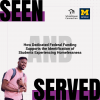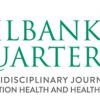Using Wage Supplements in Child Care and Early Education
Policy Brief
Feb 1, 2025
Wage supplements—in the form of, for example, bonuses, stipends, or tax credits—are gaining traction as ways to improve compensation in the child care and early education field. This brief explains how they can enhance retention and reduce turnover.


